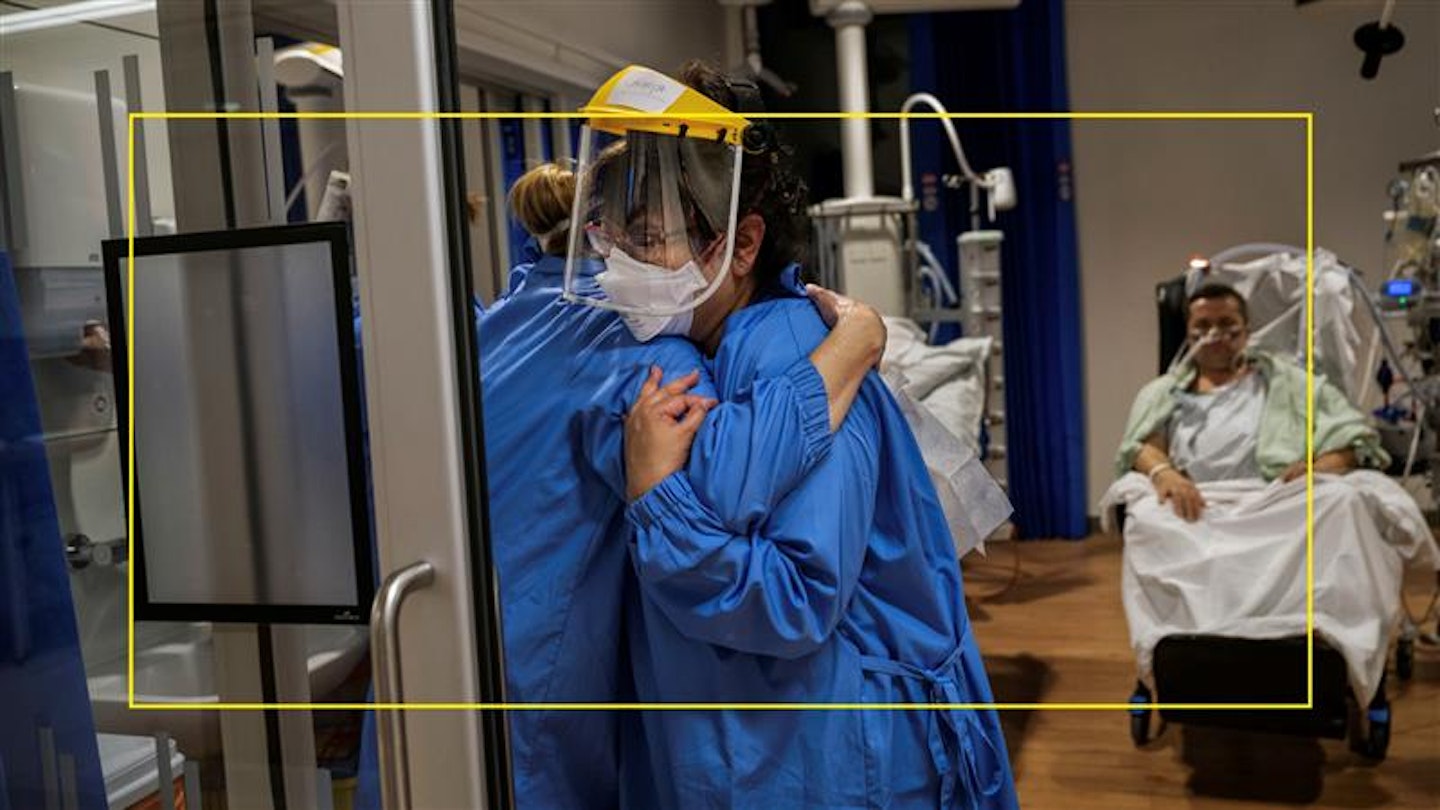It's been a year since we retreated into our homes for our first lockdown, while frontline NHS workers ran towards the frightening new disease we were hiding from. Last March, Grazia put four of them on our cover to celebrate their dedication as they embarked on the most relentless year of their lives.
Two waves of surging infection, more than 230 NHS worker deaths and over 125,000 UK-wide coronavirus deaths later, many are numb, exhausted and suffering from PTSD.
‘Covid has changed me. I’m sure it probably has everyone on the frontline,’ says Janitha Gowribalan, 36, an ICU doctor in London who told us at the start of the pandemic she was worried about how they were going to cope. ‘I didn’t appreciate the fragility of life before. It’s been profound,’ she says. She hasn’t seen her mum since before it all began. ‘I’ve forgotten to be kind to myself and make sure my needs are met.’
Janitha has patients still in hospital who caught the virus when rules were relaxed before Christmas; a few remain in induced comas. She’s also nervous about the easing of restrictions on 21 June (when all limits on social contact could end). ‘If the population as a whole isn’t vaccinated, there could be potential for a third wave,’ she says. ‘There’ve been quite a few moments where I’ve been close to quitting. I broke down when one of my patients, who had a four-year-old daughter, died. I cried with his wife by his bedside. The grief and loss has been so much.’
Somehow, society went from seeing us as heroes to thinking this is all our fault.
London nurse Sara Cucciniello, 28, says the past 12 months have tested the NHS to its limits. ‘We’ve been redeployed to areas we’ve never worked in. I feel sad the 1% [pay rise offered to NHS staff ] doesn’t reflect the effort nurses have put in this year.’
Judith Agwada, 42, a doctor in London, has lost family and colleagues to the virus. ‘I’ve not had a chance to grieve properly. Being unable to form supportive bubbles with loved ones for fear of infecting them hasn’t helped,’ she says. Many medics have taken on extra work, covered colleagues when they’ve been off sick and had no annual leave; Judith herself is still breathless after catching Covid last March.
‘Somehow, society went from seeing us as heroes to thinking this is all our fault. There’s been accusations we’ve inflated the number of cases and anger that we haven’t been able to keep outpatient services open. I’m scared because I feel numb. What comes after numb?’ she says.
While cases are dropping, Janitha and Judith are nervous that we’ve been here before. ‘A year ago, I was hopeful for a different outcome. Now, I feel guarded about what happens next,’ Janitha says.
‘I feel let down by the Government and I don’t think this will be the last pandemic. In my working lifetime it will happen again.’
Judith, meanwhile, is focusing on us being able to ease the things we value back into our lives. ‘A year ago, I felt petrified and had no idea about what we were ealing with or what was to come,’ she says. ‘Now I know better and we did better, but at a huge cost – our physical and mental wellbeing. I’m profoundly exhausted now but more than ever I’m ready to get back to rediscovering the things I used to love about life, to find out if I’m going to be OK.'
Read More: Terrified. Emotional. Uncertain. Lonely. Four Tales From The NHS Frontline
